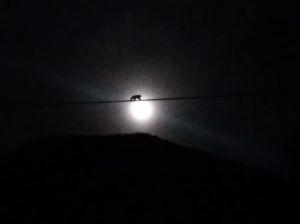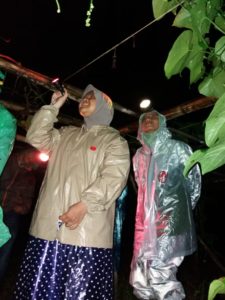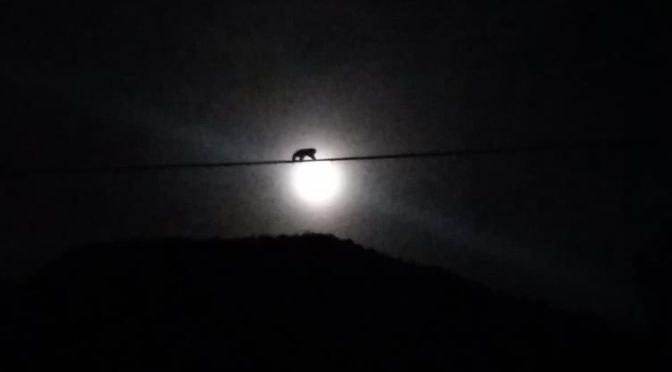On January 30th, it was the day about you, the primates in Indonesia. Do you have any hope that you want to convey to us humans?

Maybe you are asking that we can protect the earth, protect the ecosystem and even where you live so that we will not over-exploit. Forgive us for being humans who have destroyed your forests by cutting down trees, mining or converting land into plantations. These activities will have an impact on primate life as we take resources that provide comfortable habitats for primates to live in. Not all primates can live in habitats that have interference with humans…
But one of them lives near the village of Cipaganti, Garut, a village that respects primates. There is one primate that has a habitat with human intervention such as settlements and community plantations. This primate is the Javan slow loris and one of the lorises who has a habitat on the community plantations is called Mimi. Mimi’s habitat surrounds a pumpkin plantation which is surrounded by other types of trees such as eucalyptus, avocado, suren and bamboo. One day while observing Mimi, she was in a suren tree which was in amongst lots of other trees, and around it there is a pumpkin garden that grows tightly on the poles making it difficult to find a gap to see Mimi who is above the tree, so when observing Mimi, we need to observe closely by making a small gap between the pumpkin plants in order to see the slow loris.

This is not easy to do because we need to look up to form an angle almost reaching 75 degrees with our heads, making our necks get tired quickly. But that’s what you have to do when there is no easy place to observe the slow lorises going about their day-to-day lives. Even though Javan slow lorises in Cipaganti can live close to community settlements, we must not forget the primate’s needs for the existence of food sources, trees for their beds and the comfort of not being the target of hunting. Therefore, early recognition of forest ecosystems and their functions in the community of Cipaganti and the surrounding villages is very important so that in the future, they can know the importance of forest ecosystems and therefore, can help to protect the animals that live in the forests around their homes.

